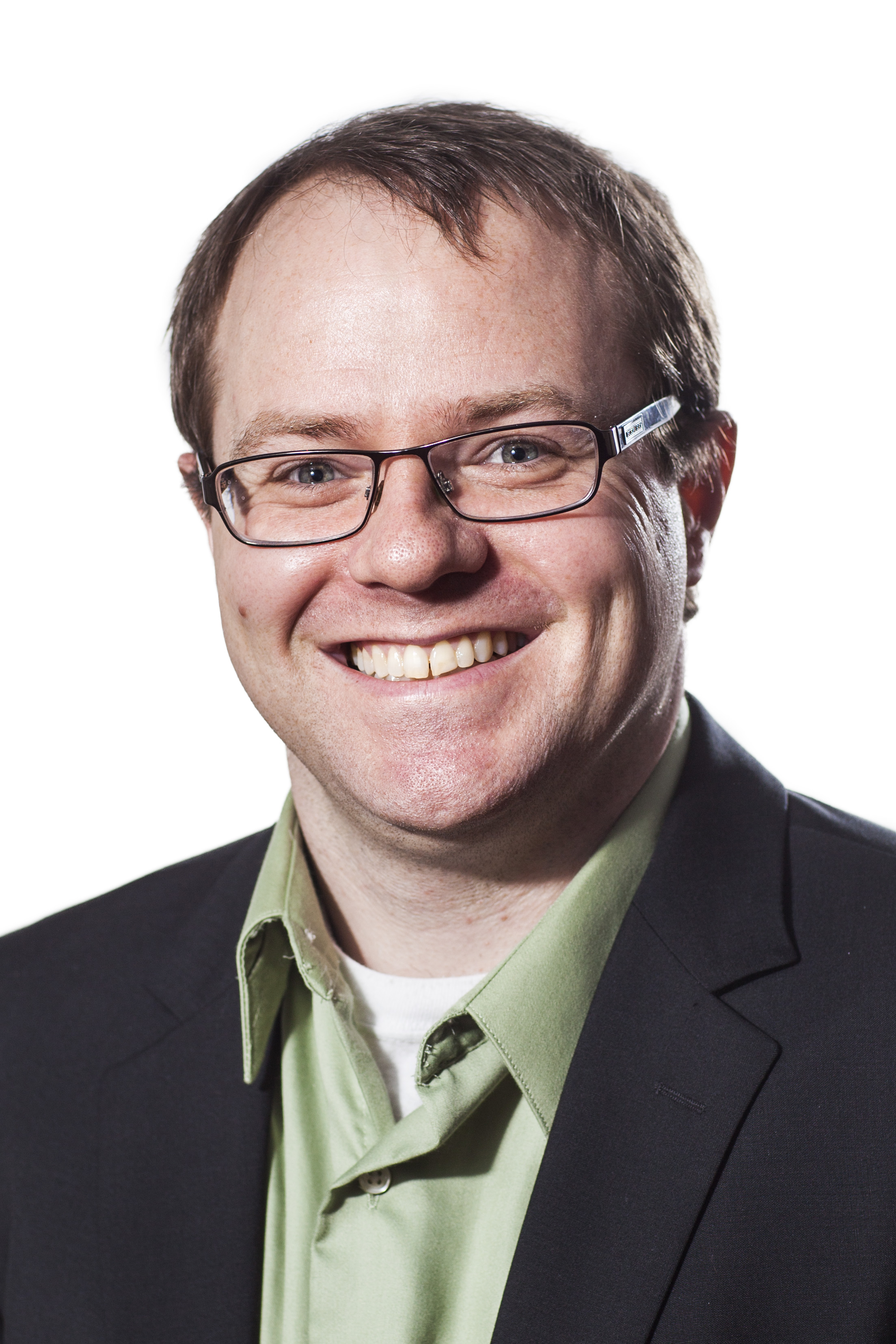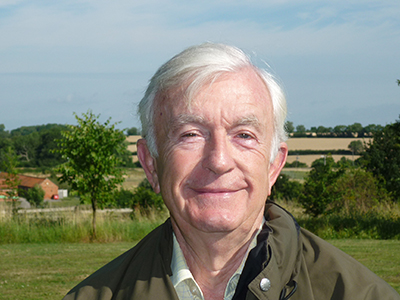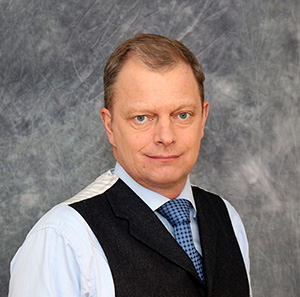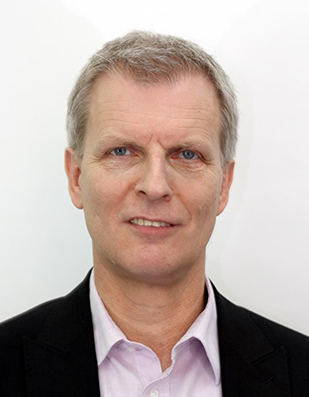Keynote Speakers
The following Key Note speakers are confirmed.
|
Benjamin K. Sovacool, Professor of Energy Policy
University of Sussex, UK
The State of Energy Studies and the Value of Interdisciplinary Research
Dr. Benjamin K. Sovacool is Professor of Energy Policy at the Science Policy Research Unit (SPRU) at the School of Business, Management, and Economics, part of the University of Sussex in the United Kingdom. There he serves as Director of the Sussex Energy Group. He is also Director of the Center for Energy Technologies and Professor of Business and Social Sciences in the Department of Business Development and Technology at Aarhus University in Denmark.
Professor Sovacool works as a researcher and consultant on issues pertaining to energy policy, energy security, climate change mitigation, and climate change adaptation. More specifically, his research focuses on renewable energy and energy efficiency, the politics of large-scale energy infrastructure, designing public policy to improve energy security and access to electricity, and building adaptive capacity to the consequences of climate change. Professor Sovacool is the founding Editor-in-Chief for the international peer-reviewed journal Energy Research & Social Science, published by Elsevier, and he sits on the Editorial Advisory Panel of Nature Energy. Professor Sovacool is the author of more than 300 refereed articles, book chapters, and reports, and the author, coauthor, editor, or coeditor of 18 books on energy and climate change topics, including those with MIT Press, Oxford University Press, Cambridge University Press, Johns Hopkins University Press, and the Nature Publishing Group/Palgrave.
He is the recipient of the 2015 “Dedication to Justice Award” given by the American Bar Association and a 2014 “Distinguished Visiting Energy Professorship” at the Environmental Law Center at Vermont Law School, and he has received or managed large competitive grants from the U.S. Department of Energy, U.S. National Science Foundation, MacArthur Foundation, Rockefeller Foundation, NordForsk, Energy Technology Development and Demonstration Program of Denmark, and the Danish Council for Independent Research. Professor Sovacool received his PhD in science and technology studies from the Virginia Polytechnic Institute & State University in Blacksburg, Virginia, where he won the “Outstanding Dissertation of the Year” award from the College of Social Sciences and Humanities.
|
 |
|
|
Kirsty Anderson, Global CCS Institute, UK
Stakeholder Engagement with CCS – experiences and challenges
Kirsty joined the Global CCS Institute in February 2012 as the Principal Manager of Public Engagement. In her role, she is focused on providing guidance and support to CCS projects and other stakeholders on effective methods for delivering project specific public engagement activities, and improving access to the host of communication and public engagement resources available from the Institute.
Kirsty works closely with social researchers, public engagement and communication specialists and CCS project developers, to capture and disseminate learning and best practice on engaging the public and key stakeholders on CCS. Kirsty also manages the Institute’s CO2degrees Education program – an international school education initiative that provides a full suite of engaging education resources on energy, climate change, CO2 and CCS. Kirsty works with a network of educators, international research organisations and Governments to develop new education resources and adapt the CO2degrees education program to different educational settings and cultures.
Prior to starting at the Institute, Kirsty was the Communication and Knowledge Share Manager on the ScottishPower Consortium CCS Project (the Longannet Project) in the UK. Kirsty was responsible for the creation of the project’s knowledge sharing and engagement strategy, the production and delivery of the ScottishPower Consortium’s Front End Engineering Design knowledge products, and for stakeholder engagement activities including education and outreach.
|
 |
|
Michael Jefferson, Professor at ESCP Europe Business School (London campus), Senior Fellow of the University of Buckingham (UK) and Editor of the Journal Energy Policy.
The global social and political challenges of a low-carbon energy mix in the 21st Century
Michael Jefferson was Shell’s first Group Chief Economist (appointed during the 1973 oil crisis), a post he held together with membership of Shell’s famous scenario planning team – responsible for assessing the global economic, geopolitical, and, for much of that time, societal issues and prospects - until 1979, when he became Head of Shell’s European Organisation’s Oil Supply & Appraisal team and Head of Planning. Among other posts held were local Director of Oil Supply & Trading in Sweden and Head of Oil Pricing, Shell International Petroleum Supply & Marketing.
For ten years he was Deputy Secretary-General of the World Energy Council, where he was also responsible for studies and wrote several books and monographs. He chaired the Policies Committee of the World Renewable Energy Network/Congresses for some sixteen years. He has been a Lead Author, Contributing Author, Editorial Reviewer and Expert Reviewer for the Intergovernmental Panel on Climate Change, and has received their Certificate for his contributions towards their award of the Nobel Peace Prize in December, 1997.
He has written and contributed to many books, and is the author or co-author of many papers published in peer-reviewed journals. His most recent publications include: “A Renewable Energy Future?” in Roger Fouquet (ed.): “Handbook on Energy and Climate Change” (2013); “Challenges to Global Energy & Supply Security” in Leal Filho & Voudouris (eds.): “Global Energy Policy & Security” (2013); “Closing the gap between energy research and modelling, the social sciences, and modern realities” in Energy Research & Social Science (2014); and “There’s nothing much new under the Sun: The challenges of exploiting and using energy and other resources through history”, Energy Policy, November, 2015. Among his earlier work is a history of inflation over the past 2,200 years; an examination of the treatment of the Industrial Revolution in social (didactic) fiction; and numerous contributions on scenario planning. |
 |
|
May Tan-Mullins, Director of the Institute of Asia and Pacific Studies and Professor in International Relations with the School of International Studies, University of Nottingham Ningbo China
The greener evil? Chinese hydropower sector goes international and its global implication
Tan-Mullins primary research concerns environmental governance and political ecology of marine resources but her broader interests relate to non-traditional security issues such as the conflicts and resolutions of transboundary resources, and energy, environment and food security issues. Her first research with China (funded by ESRC, UK) concerned the developmental debates and politics of Chinese engagement with African development. Her current research interests are on environmental issues in China and the environmental footprint of Chinese’s investment in Africa and Chinese firms’ Corporate Social Responsibility.
Based on her expertise in various development and environmental issues, Dr. Tan-Mullins has also done consultant work for the National Bureau of Asian Research (US) and the Revenue Watch Institute (US). In addition, she is currently a consultant for the Ningbo Municipal Government (China), advising on various non-traditional security issues such as energy and maritime security issues and Corporate Social Responsibility (CSR) of Chinese investment in Africa and Asia. She has been awarded the Rockefeller Bellagio writing residency working on ‘Social resilience in Chinese Eco-cities’. Her most current research project is together with colleagues from King’s College London UK, TU-Delft, Freiburg University Germany and University of Toulouse I Capitole where they were awarded €1,284,319 by European and Chinese funders for ‘Smart eco-cities for a green economy: a comparative study of Europe and China’ (2015-2018). Another project is with the School of Oriental and African Studies and Open University, funded by the ESRC UK, is to conduct research on Chinese hydropower dams and their impact on Africa and Asia (2012-2016). |
 |
|
|
Tomas Kåberger, Professor of Industrial Energy Policy, Energy and Environment, Chalmers University of Technology, Sweden
Fairness in energy sector crisis management.
Tomas Kåberger has a MSc in Engineering Physics, a PhD in Physiscal Resource Theory, a Docent degree in Environmental Science and has served as professor in International Sustainable Energy Systems at Lund University and currently is professor of Industrial Energy Policy at Chalmers University of Technology in Sweden as well as Overseas distinguished Scientist at Zhejiang University in China. He is Editor in Chief of Energy Science and Engineering [a href="http://www.energyscienceengineering.com" target="_blank">www.energyscienceengineering.com
Industrially Kåberger has held leading position in several energy companies. He served as managing director of TPS thermal processes, supplying biomass combustion equipments He was chairman of the board of an early wind power company with three wind power plants. At present he has insight into the incumbent power companies as member of the board of directors of Europes fifth largest power company Vattenfall, and the new technology companies as member of the board of Cleanergy, a company pioneering the development of solar-supplied Stirling generators.
Since 2011, hew spends a quarter of his time as executive board chairman of Japan Renewable Energy Foundation.
Previous to his current assignments he served the Swedish Government as Director General of the Swedish Energy Agency. In that capacity he headed the Swedish delegation to the International Renewable Energy Agency in Abu Dhabi, and was elected vice chairman of the Council of IRENA.
Professor Kåberger is elected member of the Royal Swedish Academy of Engineering Sciences and of the Swedish Association of Energy Economists.
|
 |
|
|
Jiří Slovák, Managing Director, Radioactive Waste Repository Authority (Správa úložišť radioaktivních odpadů / SÚRAO), Czech Republic
Current experiences with the involvement of local communities in an early phase of site selection for a deep geological repository for nuclear waste
Jiri Slovak obtained Master degree of Basic and Deposits Geology and Doctor Diploma of Geochemistry and Deposit Geology at the Masaryk University Brno graduated from the faculty of natural sciences of the Masaryk University in Brno with a master’s degree in basic and deposits geology and, subsequently, a doctorate in geochemistry and deposits geology.
His professional experience in the field geology, geochemistry geological survey, environmental remediation and radioactive waste management are based work in different position in state enterprise DIAMO (former Czechoslovak Uranium Industry Corp.),Czech hydrogeological company AQUATEST and ÚJV Rez.
He has been involved as project manager in many different national and international environmental remediation projects (after uranium mining) as well as research projects in the fuel cycle backend and radioactive waste management. Throughout his entire professional career he has worked in technical and managerial positions, initially in the field of mining geology and the ecology of uranium mining and since 1997 in the radioactive waste and spent nuclear fuel management.
From 2008 to 2014 he worked at SURAO as Deputy Director for Development and was responsible for the coordination of the Czech deep geological repository programme and the coordination of research in the field of radioactive waste and spent nuclear fuel management. He has held the position of Managing Director of SURAO since 2014.
He is a member of the IGD-TP (Implementing Geological Disposal Technology Platform) and a member of the national Working Group for Dialogue on a Deep Geological Repository.
|
 |
|
|
 Loading page...
Loading page...
 Loading page...
Loading page...

